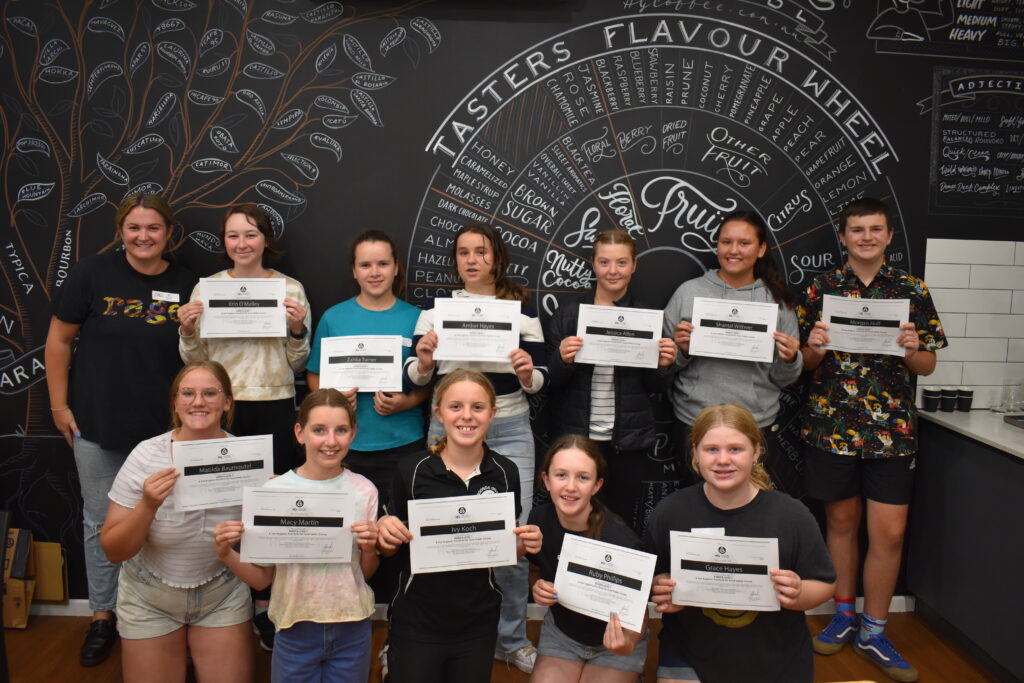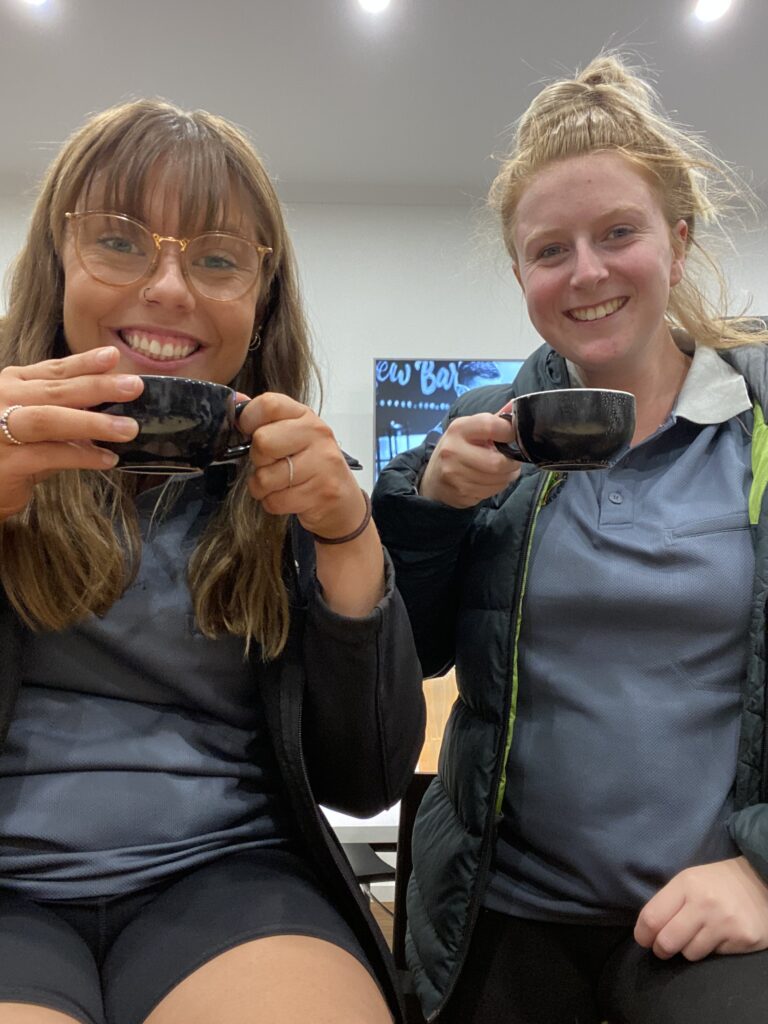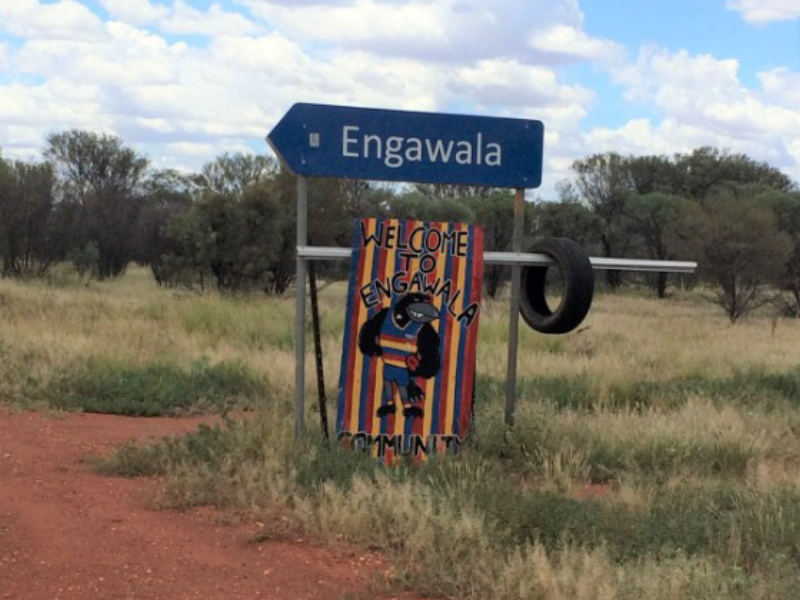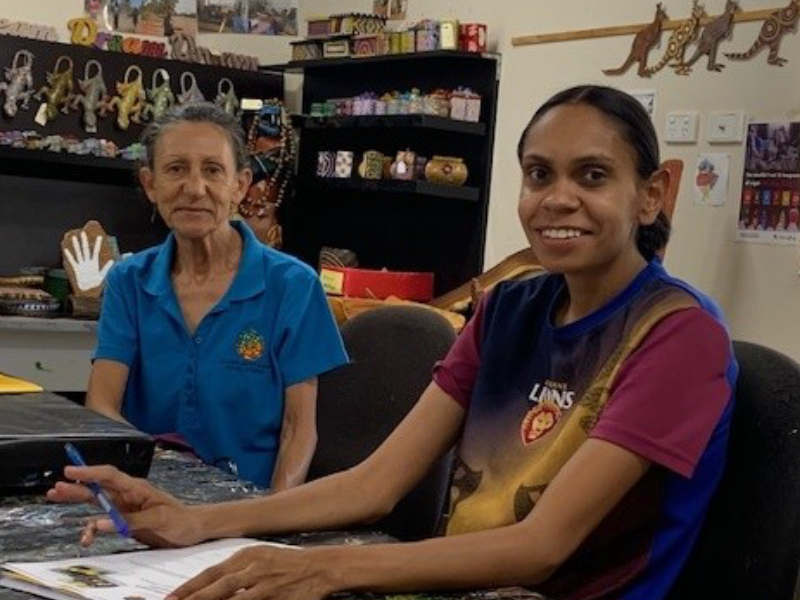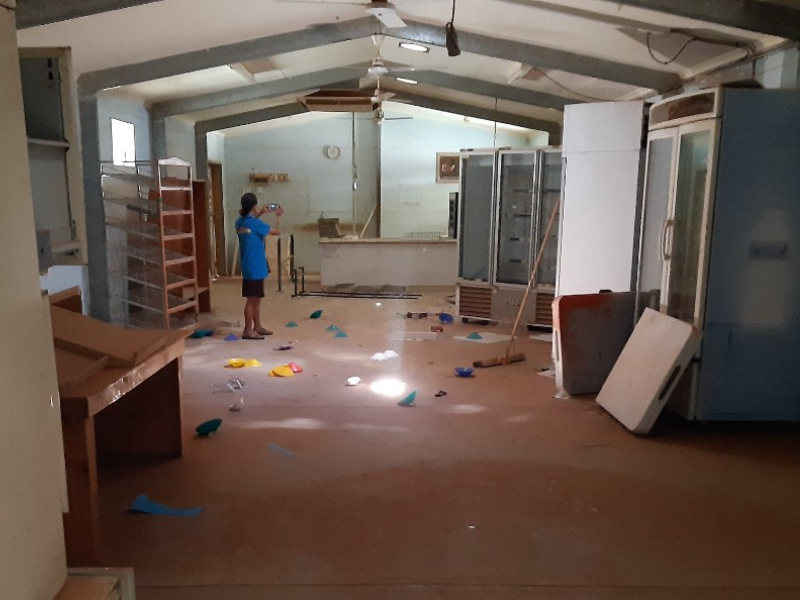Foundation for Rural & Regional Renewal (FRRR)
In an effort to empower local youth and provide employment skills, Karoonda District Council successfully secured a $10,000 FRRR ABC Heywire Youth Innovation Grant under the 2022 idea, ‘Discover Your Future’, with a project that is now brewing success for local youth.
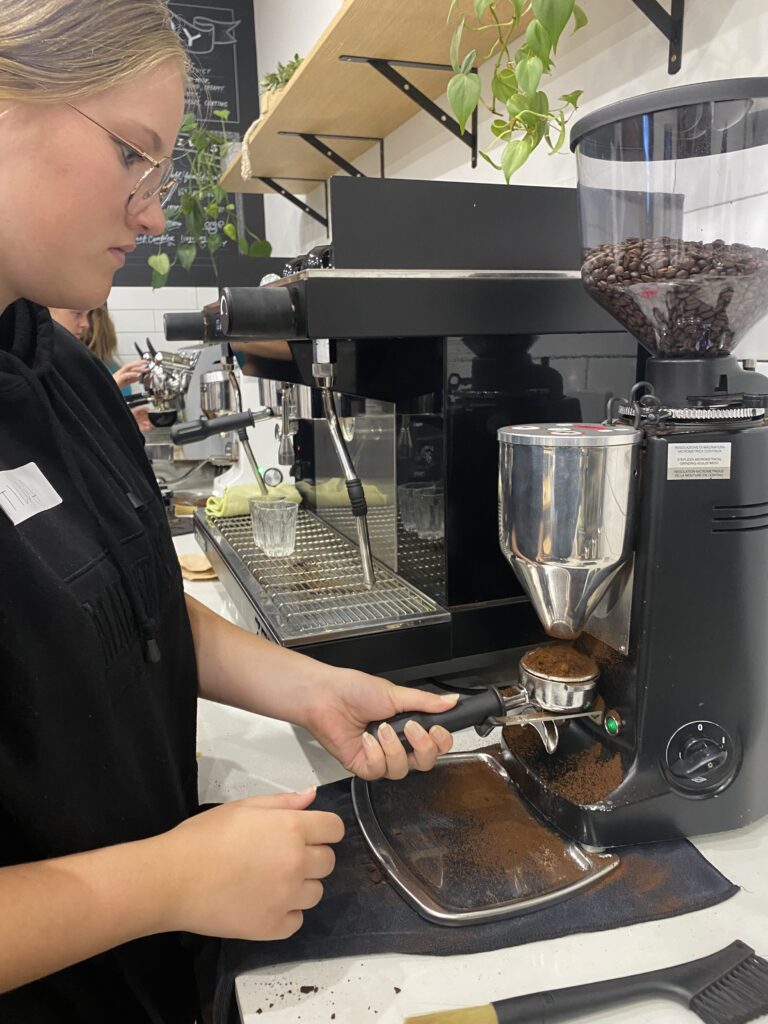
The project, spearheaded by the council’s Youth Action Committee (YAC), aimed to provide professional training and entrepreneurial opportunities for young individuals in the small regional area, located 150 km east of Adelaide. With just 17 council staff and a population of 1,090 spread over 4,415 km2, the council recognised the need for initiatives that would not only develop skills for local youth, but also nurture future leaders and provide a funding source for future youth projects.
The YAC is a group of young people aged between 12-25 designed to develop the leadership and life skills of its members. The group discusses youth issues and helps to organise youth and community events. The YAC members identified barista training as a versatile skill set crucial for enhancing employment prospects in Karoonda. With just two cafés in town, local youth faced challenges in gaining this skill set, compared to their metropolitan counterparts.
Unable to secure a trainer on site in Karoonda, the fifteen young people aged between 13 and 20, attended training at the HG Coffee School in Adelaide. While this made for a long day, the change of site had a hidden benefit – the travel together on the bus provided valuable binding time for the young people and council staff.
The training covered theoretical and practical aspects, ranging from coffee styles to customer service and machine hygiene. From there, participants received their internationally-recognised Level 1 barista certification. From this training, two young individuals secured part-time employment locally, while three others found opportunities in Adelaide, underscoring the effectiveness of the barista training in enhancing employability.
However, the project didn’t conclude with training alone. With the acquisition of a coffee machine and equipment, the YAC established a mobile coffee business strategically located at the Karoonda Institute, a community building owned by the council and a hub for civic and community events. The youth were involved in planning and discussing different business models and the best way to run a mobile coffee setup for their community. This mini social enterprise not only provides a local platform for youth to hone their skills, but also generates ongoing revenue to support future activities and ideas by the Youth Action Committee, ensuring their sustainability and lasting impact.
Engawala, also known as Intiarntwa, is a remote community 200 kms northeast of Alice Springs. It has a women’s centre, childcare facility, school, remote health clinic, Council office and recreation hall with a youth program servicing the 150 people that live there. Excitingly, it will soon also be home to the Engawala Art Centre.
The Engawala Art Centre Aboriginal Corporation (EACAC) formed in 2019 and is overseen by a committee of five. Twelve local artists have been making the 400 km round trip to Alice Springs to sell artworks, with the cost of travel a drain on their income. There was agreement that it would be ideal if they had their own Art Centre where they could paint and have a gallery to sell to the public.
Long-term impacts
The benefits of a strong arts and crafts sector are far-reaching. Establishing and building the capacity of Indigenous art centres goes a long way to sustaining remote communities. They play an indispensable role – as a place of cultural leadership, language and identity, community engagement and are often also a provider of essential social and wellbeing services. They are a link to the mainstream art market and, when operating effectively, these enterprises can be a key source of income, training and employment.
Recognising this, the EACAC developed plans for a dedicated Art Centre in the community and set about making it a reality. In 2021, they applied to FRRR’s Strengthening Rural Communities program (Small & Vital stream) for a grant to cover administrative costs during the start-up phase. This would cover subscriptions to the Stories, Art, Money (SAM) software program; membership of Desart, the peak Arts body for Central Australian Aboriginal Arts and Crafts centres; telecommunications equipment; promotional signage; and art materials.
With strong letters of support and partnerships in place, the application was successful, and the group was awarded $8,595, thanks to the Yulgilbar Foundation.
Getting it right with upskilling and the tools for the job
The EACAC maintains that the most valuable outcome has been the employment and training of an arts worker. Once a week, an experienced volunteer has visited the Engawala Community to do training, with other training completed remotely, via the new phone. This meant the project could continue in between visits. The Centre’s arts worker now has all the basic skills for running an office and working with the SAM database, even attending an advanced course in using SAM at Desart in Alice Springs.
“While we have secured funding from the Commonwealth Department of the Arts to continue her employment, we would not have got to this stage without support from FRRR. Their grant to our Art Centre is allowing us to go from strength to strength.
“The equipment purchased through the grant has also made a critical difference. We cannot operate the Centre without the phone, and the iPad and scanner have made the recording of artworks for upload to SAM possible. Previously this was done using a borrowed mobile phone, which was very time consuming and unsatisfactory.”
Building for the future
While the renovation of the old shop for the new Centre was heavily delayed, the group sees the silver lining – they had had extra time to prepare to hit the ground running.
The EACAC is now actively promoting of the Centre which was opened by the NT Minister for the Arts in August this year., The Centre has worked with nearby Gemtree Tourist Park to provide short tours to see the artwork billboards on the Plenty Highway followed by a visit to the Art Centre. The billboards, some depicting work by Engawala artists, are part of the Outback Way Outdoor Gallery project which was also supported by FRRR.
The Art Centre project has also helped to open up new markets, bringing with it more resources to continue to grow the Centre. The artists sold an impressive $13,000 worth of Engawala artists’ paintings in one day at the Desert Mob Marketplace in Alice Springs, assisting them with paying for items they could not secure funding for such as electricity and insurances.
“While not our biggest financial partner (the bulk of our fundraising was for the renovations), FRRR’s contribution towards our project was critical at an important development phase. Many projects fail at this juncture between getting the ideas and finding substantial financial support. In a commercial sense, the funding was critical in terms of kick starting the project.
David (Taffy) Denmark, volunteer Business Advisor
“We appreciate the flexibility FRRR has shown – something not evident in some government funding programs. This is one of the major strengths of the philanthropic movement.”
A huge congratulations to the committee and all those involved in the project to date. By deciding to professionalise the management of the Arts Centre, this group is building a place for employment, training, business opportunities, tourist-based income, cultural maintenance, pride, “a laugh and a cuppa”, and thus strengthening the Engawala community for the future.
West Coast Connect (WCC) was established in 2013 to support social and economic development around Queenstown and the west coast of Tasmania. With a staff of four, a committee of five, and 25 volunteers, WCC aims to provide supportive core services that encourage a shared, communal impact to socio-economic issues within the community and the region.
Growing training opportunities
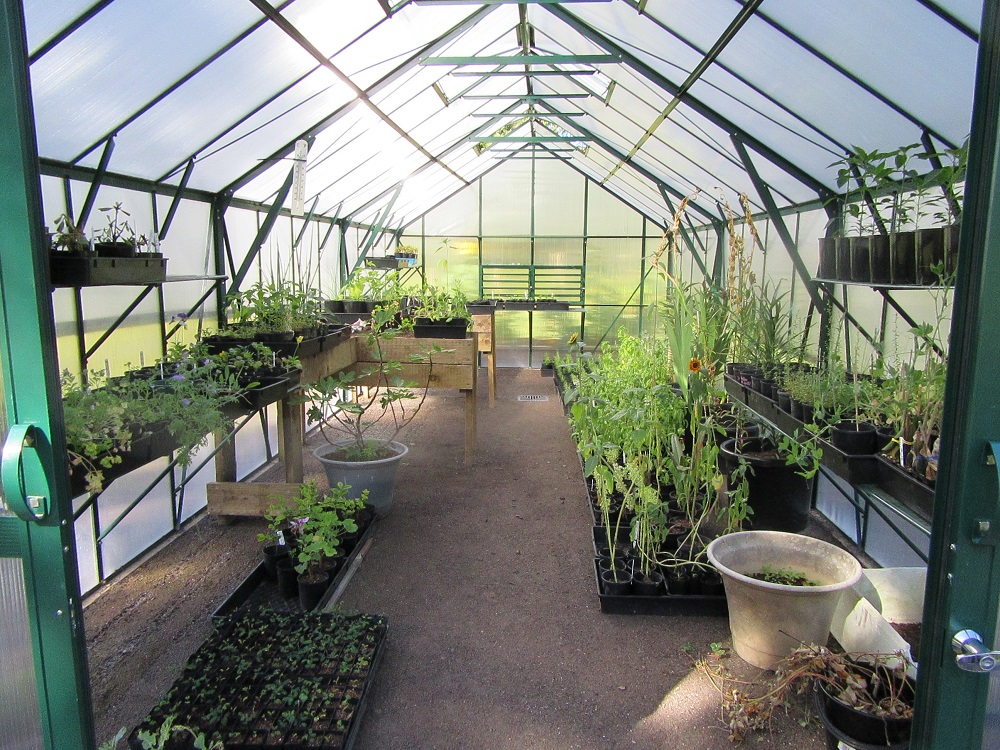
With the West Coast of Tasmania losing their TAFE Tasmania Campus over 10 years ago, community members only had access to training organisations that are located a minimum of 200km away.
To address skill shortages and provide job opportunities, WCC decided to offer vocational training in horticulture, conservation, land management and landscaping. They devised a plan for a new training facility to offer short courses and vocational training in conjunction with TasTAFE – BUT first they needed to equip the training grounds with essential infrastructure.
On the ground training aims to raise local employment
WCC secured a Strengthening Rural Communities grant of $9,200 to purchase a greenhouse, garden beds and planter boxes that were accessble by people with mobility issues. This equipment was manufactured by Qnique Products, a Social Enterprise that engages in vocational carpentry and joinery training for unemployed residents and residents with disabilities.
The horticultural facilities serve as a practical learning area, both as a hands-on training ground for vocational training in horticulture, landscaping and conservation and land management, and for the wider community, as an area for exploring and learning about growing organic foods, growing herbs, establishing and maintaining a cottage garden or growing fruit trees in a harsh climate.
Having the greenhouse also meant WCC could commence the Training and Work Pathway Program – for long-term unemployed jobseekers. Participants were involved in the initial establishment of the center, from building the access path to putting in place the raised garden beds and building in ground ones.
“Community interest in the centre was great from the beginning. Community short courses run at the centre were very popular and received great feedback. Enquiries about further courses are constant.”
Unexpected value for the community at large
Additionally, the Centre proved to be of great value to the community after the Queenstown community garden was forced to close in August 2020. WCC now sees a need to further develop the centre for greater access to the community at large and wants to establish mini-greenhouses and garden beds for local residents with an interest in gardening but no opportunity to do so at their home.
“West Coast Connect wishes to express our thanks for the grant money. Without this funding, the establishment of the horticultural training and discovery centre would not have gone ahead due to financial restraints.”

